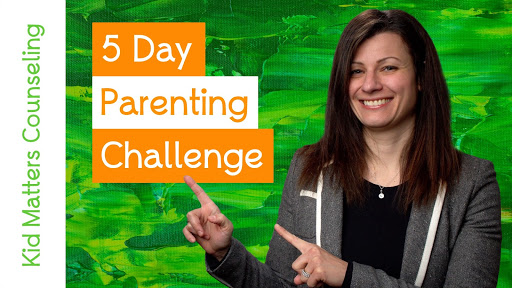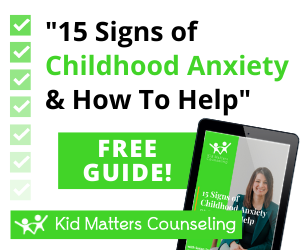A 3 Part Series in Behavior Modification
He grabs the doorknob, clutching to get away. He can’t, so he turns towards you, opening his mouth and furrowing his brow, and screams. He decides if he can’t run from being in trouble, he is going to come at you with fists flying! That doesn’t work either. So he drops to the floor and continues to mix screams with sobs.
He is having a tantrum, leaving both you and your child feeling like you’ve experienced a meltdown. Eventually you contain the tantrum, and when at first chance you cry out to Google for help. What is wrong with my child?! And why is nothing I’m doing as a parent working?!
This post is the first of three posts on the basics to understanding behavior modification. Below are potential triggers that are off setting your child, helping you begin to individually think through your child and ‘why’ behind misbehaviors. The list of potential triggers in not all-inclusive, and if you are still feeling helpless as to what could be going on with your child, consider reaching out to a professional with experience to come alongside you.
Understanding Behavior Modification
There are countless resources out there for parents to modify their misbehaving child. Most of them boil down to three components.
- Triggers
- Behavior
- Consequences
When your child is throwing a tantrum, it can be hard to stop and think through these components. Take time now, during neutralized-chaos-free time, to familiarize yourself with possible triggers. Then, after the moment is contained, use what is happening with your child to tailor your response to the behavior. Recognizing what comes before or during behavior could potentially be your key to success.
Behaviors. Usually this dirty word comes up to describe only the negative things children do. When children are good, the world seems right and there is no need to make mention. The stress of a misbehaving child is not driving us need to verbally relieve the pressure.
Whether good or bad, however, behavior is a way children communicate. Behavior drives their message home. It can be the “I love you mommy” when your little helper pitches in. It can also be the “I feel like you’re abandoning me!” when your child starts acting differently in a divorce. All behavior strives to communicate something. Your child is trying to connect and communicate with you.
Triggers
Triggers are incredibly important for understanding behavior! It is so easy as a parent to fall into thinking that a child is just being spiteful. Remember: they are trying to communicate something important with you. Below are several common triggers that could be prodding your child into misbehaving.
Fear
Fear. It is one of the greatest (and worst!) motivators on our planet. Your child may have developed a specific fear (dogs, doctors) or a more general fear (abandonment, parents dieing). Also, become curious of what comes before your child’s meltdowns. Is there always a dog present? Do they know a medical checkup is coming up? Has your child been away from you as you are transitioning back to work, making them wonder when they are going to see you again?
Using genuine curiosity, take in what is happening prior to bad behavior. If it is fear based, remember that children are very concrete thinkers. They may be needing skills or concrete knowledge (like the ones mentioned here) from you in order to cope with their fear.
Here is a parenting support article for childhood anxiety.
Trauma
Similar to anxiety, if your child has experienced an event or circumstances that overwhelmed and left them feeling helpless, they may be trying to escape a reminder of the trauma. Anything to avoid! Trauma is also fear-based like anxiety.
One of the main ways children process trauma is through story. If you are recognizing your child misbehaviors as triggered by trauma, consider helping your child process this event through story. If you have previously been trying to avoid the trauma, pick a time where both you and your child are feeling calm and good. Bring up the event like you’re reminiscing, and start using questions and statements like, “What happened next?” and “What did you feel when that happened?” to retell the event over and over. You may need to do this until the child processes the event enough to externalize and more past it.
Divorce
A wide variety of behavior can start to express itself in a divorce situation. Children can start faking sick, lashing out in anger, hoarding food and other objects, start having nightmares and stop feeling safe, become hyper-independent and grown up, and much more. Honestly, it can be hard to guess how exactly a divorce will impact a child and express itself through behavior.
If there is a separation and divorce going on in your family, it is your child’s attempts to communicate with you. Start to think through if they are attempting to bring you both back together, are feeling abandoned, or are wondering if they will ever see the other parent again. Once you start to figure out what is going on for your child, you can speak into their behavior and thoughts directly. And kids need to be reminded over and over again that the divorce (and parents potentially getting back together) is not their fault or in their control.
Check out this guide to start thinking about how to individually help each of your children transition during a divorce.
Loneliness
Nothing like misbehaving brings a parent to a child faster! A child may be feeling disconnected from you because of business, other children, and phases of life like transition back to work or them going to school. In a child’s thinking, they just want time with their parent. So they think “if I misbehave, my mom will come.” Unfortunately, the version of their parent they get is frustrated and angry because they did something they weren’t supposed to! So they end up feeling more disconnected than before. The cycle can be brutal.
Try spending some quality time with your child if you think life may have left you disconnected lately. Could it really be that simple?
Hungry and Tired
Of course! It is time to eat. Isn’t that why most of us adults freak out? Same is true for kids, and they get hungry and tired more often than adults! I wanted to add this to the list of triggers because not all of your children could be struggling with fear or divorce. They may just be feeling the daily struggle of needing food and sleep.
In conclusion, your child is desperately trying to bring you into their world. And for some reason their misbehavior makes sense. They may not be being bad, but trying to deal with whatever life has thrown their way. Thankfully they have you to guide them.
– Alexandra Hoerr, MA, LCPC

Alexandra Hoerr
Child Therapist | LCPC, RPT
It’s hard work but research has shown that helping your child now, while their brain is still growing, will reduce risk of regression, increase quality in learning, and will pave the way for a hopeful future.
Kid Matters Counseling has trained therapists ready to help both kids and parents walk through the tough moments in life.
End the frustration & the confusion and let's work together! SCHEDULE APPOINTMENTNew Clients Call: (855) 586-1802
Current Clients: (855) 543-7687
Ask Us Anything!
We help anxious kids and frustrated parents. We serve Hinsdale & the Western Suburbs of Chicago.
Made with ♥︎ in Hinsdale, Illinois for Chicago
Built By Brand Your Practice.
Kid Matters Counseling, P.C. DISCLAIMER: This website and blog are for informational, educational and general discussion purposes only. It is understood that no guarantee or warranty arises from the information provided, discussed or commented upon in this website and blog nor does it constitute legal or other professional advice on any subject matter. Access to this website and blog is voluntary and at the sole risk of the user. If you think that you have a medical emergency (including clinical), call your doctor or 911 immediately. A licensed medical professional should be consulted for diagnosis and treatment of any and all medical conditions. While the information contained within this website and blog is periodically updated, no guarantee is given that the information provided is correct, complete, and/or up-to-date. See our complete Privacy Policy and Terms of Service.



